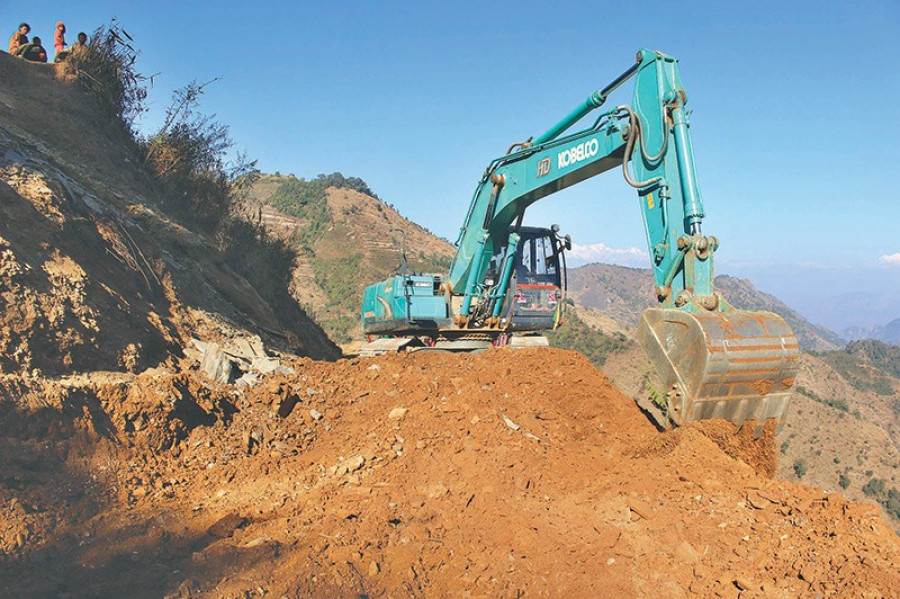National
New rule means contractors need to use bank credit in public construction projects
Contractors lobbying against the provision say it limits their ability to participate in more bids and adds up to their costs.
Prithvi Man Shrestha
A newly introduced provision for contractors now will mean they have to use bank credit in public construction projects where government funding is not forthcoming or adequate funds have not been made available to start or carry on with the projects, according to officials.
The Public Procurement Monitoring Office introduced the new rule as part of its efforts to ensure that public construction projects do not get halted.
“The provision will ensure that only the contractor having enough financial resources can participate in bids,” said Keshav Prasain, director at the Public Procurement Monitoring Office, a government body responsible for monitoring public contracts.
“This move will force the contractors to continue work in public construction without fully depending on the government’s fund,” said Prasain.
A contractor should now have access to a credit line from a bank to participate in any government bid above Rs20 million. According to Prasain, based on the formula set by his office, a contractor has to guarantee the maximum working capital of around 10 percent of the total project cost.
As per the current public procurement regulations, a contractor can get up to 20 percent of the project cost as mobilisation advance, a fund that the government agency provides the contractor to start the work.
The new provision comes as a boon for some government agencies which award a large number of construction contracts. The Department of Roads is one agency which will benefit from the new provision, as it spends the largest amount of the government’s capital budget on public construction.
Arjun Suwal, an assistant spokesperson for the road department, said that with the new rule, the contractors will not be able to halt public works on the pretext that they didn’t have the mobilisation advance or timely payment from the government agency.
“The new provision came into effect from this fiscal year, so its impact will be visible in the next few months when the government agencies accelerate the task of awarding contracts,” said Suwal.
Contractors, however, are not happy with the new rule.
According to them, the new rule forces them to put up collateral in order to receive the credit line facility from the banks without a guarantee that a contract would be awarded to them. This adds up to their costs as they are also forced to pay commissions, they say.
“A contractor who gets the contract will be pleased, but all other bidders have to waste their money in paying commissions to the banks,” said Rabi Singh, president of the Federation of Contractors’ Association of Nepal.
According to Singh, contractors have to pay commissions in the range of 0.6 percent to 1.4 percent of the total credit line.
The new provision also restricts contractors’ ability to participate in more government bids, according to the contractors, who have expressed their discontent at the new provision with the authorities.
“We have reached out to even the prime minister requesting an amendment to the provision,” said Singh. “We had got positive assurance, but no action has been taken.”
Due to the delay in construction, as many as 1,848 projects had turned sick as of 2018, according to the Commission for Investigation of Abuse of Authority. The combined contract value of the projects is as much as Rs118 billion.




 14.24°C Kathmandu
14.24°C Kathmandu















